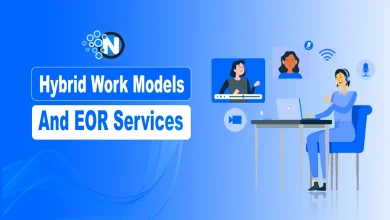Tips For Managing Cash Flow in an Electrical Contracting Business

Running an electrical contracting business takes more than skilled labor and good service. It also requires a strong grasp on financial management, especially cash flow. As work tends to fluctuate with seasons, many contractors find themselves flush with income one month and struggling to cover expenses the next. This makes it essential to build systems that keep money moving in the right direction, even during slow periods.
Cash flow issues don’t just affect payroll or operations—they can quickly snowball into deeper financial trouble if not addressed early and often. That’s why staying solvent isn’t just about earning more. It’s about managing smarter. In this article, I am going to discuss some important tips for managing cash flow in this business. Let’s start.
What Does Cash Flow Management Mean?
First of all, let’s discuss what cash flow management actually is. It is the process of tracking, analyzing, and optimizing the movement of money in a company. It includes focusing on direct income revenue sources as well as focusing on the outgoing money in the form of payments and bills.
Cash flow management is one of the most important factors of a company’s success. It helps people understand how much money they make and how much of it ends up being a profit. When you understand this flow properly, it makes sure that your company never runs out of working capital.
Tips For Cash Flow Management in Electrical Contracting Business
There are a lot of different tips that you can follow in order to manage the cash flow properly in the electrical contracting business. I’ve discussed the main ones below:

1. Understand Your Seasonal Trends
Knowing when your business earns the most helps you prepare for when it earns the least. Most electrical contracting companies experience predictable peaks and valleys. Warmer months might bring in large HVAC-related projects, while winter could mean a lull in service calls.
Track historical data over several years to identify these patterns. Once you know your busy and slow seasons, you can make more informed decisions about hiring, investing in tools, and building cash reserves. Forecasting doesn’t eliminate the seasons, it helps you stay a step ahead of them so that you’re not caught off guard when work slows down.
2. Use Technology To Track Your Finances
Manual tracking can’t keep up with the complexity of modern electrical jobs. Mistakes in invoicing, delays in payment processing, or poor expense tracking can quickly choke your cash flow. That’s where reliable accounting software for electrical contractors comes in. These platforms offer tailored features like job costing, inventory management, and integration with payroll systems.
With real-time visibility into your income and expenses, you can react faster and plan better. You also reduce the risk of human error and speed up payment collection by automating your billing process. The right software turns your numbers into actionable insights instead of guesswork.
3. Maintain A Rolling Cash Flow Forecast
A rolling forecast gives you a moving picture of your cash flow, updated weekly or monthly. It’s not just a prediction—it’s a guide for the road ahead. Start by listing your expected income and expenses for the next 12 weeks, then update it as things change. Include all sources of revenue and every outgoing cost, from payroll and materials to equipment leases.
When you compare forecasts to actuals, you spot patterns and adjust quickly. This helps prevent shortfalls before they hit. The goal isn’t perfection; it’s preparation. Keep your projections fluid, and you’ll stay in control no matter how the seasons shift.
4. Speed Up Your Receivables
You can’t afford to let clients delay payment. The longer your receivables sit, the tighter your cash becomes. Start by tightening your billing cycle. Send invoices immediately after completing a job, not days later. Include clear terms and penalties for late payments.
Offer early payment incentives if needed. Also, consider online payment options to make it easier for customers to pay on time. You can even automate follow-up reminders using your accounting software. If a client consistently pays late, have a conversation or reevaluate the relationship. Quick receivables keep your cash flowing and reduce your reliance on credit during slow months.
5. Separate Business and Personal Finances
Blurring the line between personal and business money can wreck your cash flow. It’s tempting to dip into business funds when personal bills pile up—or vice versa—but this makes it hard to see the true health of your company. Open separate accounts for business transactions, including a credit card strictly for business expenses. Pay yourself a fixed salary, even if you’re the owner.
This creates discipline and gives you a clearer view of how your business performs. When personal and business spending get mixed, your books become foggy, and smart decision-making becomes nearly impossible. Keep it clean and separate.
6. Build a Cash Reserve During Peak Seasons
Your busy months should do more than just cover current expenses—they should prepare you for the slower times ahead. When business is booming, set aside a fixed percentage of profits into a dedicated cash reserve account. Treat it like a non-negotiable business expense. This reserve acts as a cushion to cover payroll, rent, materials, and other costs when revenue dips.
Many electrical contractors make the mistake of spending too freely during high-income months, then scramble for cash when work dries up. A cash reserve takes the panic out of seasonal lows and gives you breathing room to make smarter decisions.
7. Monitor Job Costs Closely
Every project has the potential to improve—or destroy—your cash flow. Without accurate job costing, you might underbid, overspend, or miss where your profit margin slips away. Monitor each job in real time, tracking labor hours, material use, subcontractor fees, and overhead. Use tools that break down costs by phase or task so you catch overruns before they balloon.
Frequent reviews during a project help you course-correct instead of waiting until it’s over. Contractors who know their numbers mid-job can make quick adjustments that protect profitability. Job costing isn’t just about knowing what happened—it’s about staying in control as things unfold.
8. Negotiate Better Terms With Vendors
Vendor relationships don’t have to be set in stone. With good communication and a consistent payment history, you can often negotiate better payment terms that ease your cash flow. For example, instead of paying within 15 days, you might push it to 30 or even 45. That gives you more time to collect from your own customers before paying out.
You might also get volume discounts or incentives for early payment. Build strong, respectful relationships with your suppliers and be honest about your seasonal needs. Most vendors prefer working with steady, transparent clients, and that mutual trust can save your business money.
Conclusion:
Seasonal cash flow challenges come with the territory in the electrical contracting world—but they don’t have to derail your business. By planning ahead, using the right tools, and staying disciplined with spending, you can ride out the slow months with confidence. Good cash flow management isn’t about reacting to problems—it’s about preventing them before they start.
Whether it’s building a cash reserve, monitoring job costs, or training your team, every step counts. Make smart money habits part of your daily operations, and you’ll keep your business solvent, stable, and ready for whatever the next season brings.
FAQs:
What Do You Mean By Cash Flow Management?
Managing cash flow means understanding and streamlining the direct income sources as well as the expenses. It involves having a proper record of where the money comes from and where it goes in order to keep the finances streamlined.
How Do You Manage Cash Flow In A Business?
There are multiple ways through which people manage cash flow in a business. These ways include techniques like speeding up receivables and separating your personal and professional expenses.
How To Fix Cash Flow Problems In Your Business?
Cash flow problems in a business can cause a lot of problems, and you need to fix them ASAP. For that, you can cut down unnecessary expenses and improve the invoicing process. Plus, try having a better negotiation with vendors for better pricing.
Why Is It Important To Manage Cash Flow?
Managing cash flow is important for different reasons. It ensures the business is easily covering daily expenses and avoids financial shortcomings. Also, it helps with making as much gross profit as possible.




